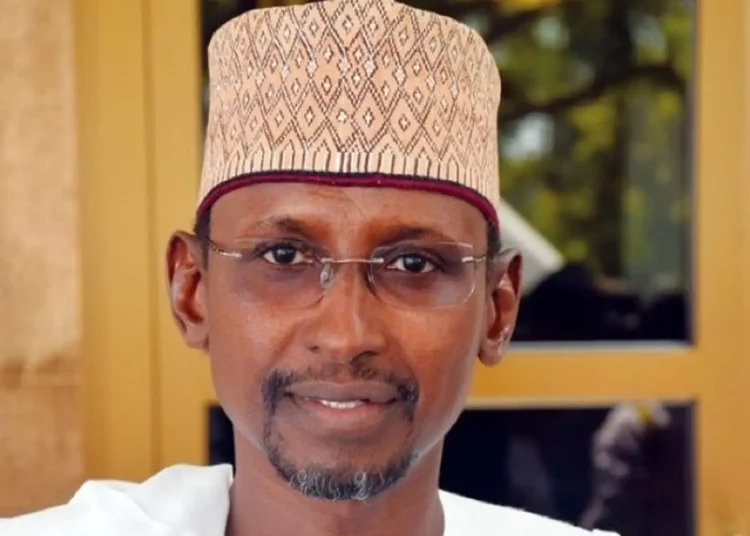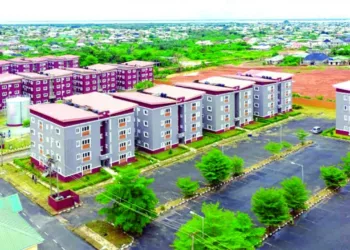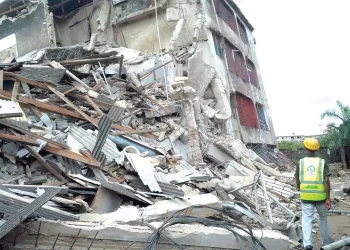Housing or shelter is a basic need of all human beings. Housing, which is one of the basic needs and an indicator of the quality of life that a citizen enjoys, also helps in creating conditions pertaining to health, sanitation and the living standards of the people.
Housing has become the hardest problem to solve in many countries of the world. It’s a problem many administrators and housing stakeholders in Abuja, Nigeria’s capital are also battling to solve. Abuja witnesses a huge influx of people into the city on a daily or yearly basis. This migration creates huge housing challenges.
There is a large difficulty in getting rental accommodation in the city as the prices are so exorbitant that low income earners cannot afford them.
But why are the rents so high in Abuja? The major reason is the cost of buying land in the city, building materials and many others. This is why the rents are very high per annum. The land lords made it so in order for them to recoup their investments.
The high rent in the city centre has forced many residents to migrate to perceived less expensive areas such as Suleja and Madalla in Niger state, and Mararaba in Nasarawa state among other such places.
Speaking with NATIONAL ECOMOMY, the project manager, Amore Homes, Mu’Azu Umar, said that it will be difficult to provide affordable houses for Nigerians and that should be why there are unoccupied houses because the cost of living, and not just the cost of building materials, is high. So all these put together are worrisome.”
Umar noted that there is an increase in the dollar rate starting from last year until now and that has affected almost every business in the country.
“Before you start a building project, you will consider the price of cement, sand, stone, blocks, iron and all that. So once there is an increase in the dollar rate, it affects all of these things, and once it affects them it will definitely affect the production.
“If you are building and the cost of building materials increases, you will want to increase the rent of the house, so that you can get something.
“So as a developer, after building a house, you put the house up for sale and you expect to get profit, not loss,” he said.
He called on government to come out with policies that would help to address these challenges, as according to him, it is the rise in the dollar rate that is causing the cost of building materials to rise, but if there is a policy that will address this, then there will be affordable houses for Nigerians.
A trader from Lugbe who gave his name simply as Mr Solomon said that the high cost of renting an apartment in an estate is higher and that is because before you can build a house, you must spend a lot of money. Just look how much is cement and a bundle of zinc, adding that almost everything about building materials had increased in cost.
According to him, the cost of building materials constitute about 65 per cent of the total construction cost.
“Invariably, building materials form the main factors that restrict the supply of housing. Having said that, it has been observed that one main barrier to the realisation of effective housing in Nigeria, as revealed in successive government efforts, has been the cost of housing in the country,” he added.
According to director general Wizpro Research Institute, Abuja, Adams, Ayo said there are a lot of unoccupied houses in Abuja because may be the owners of this houses put the rent higher may be it is because of the high cost of building these houses.
“Some of them even borrow money from banks at very high interest rates, and the only way that developers can get back their investment is by charging high rents.
“Some houses are empty because may be the owners of these houses are politicians diverting this money to build these houses. So once this property become his or her own and he is still making money from other sources, he or she will not really care about these properties and those properties will be there for those years.”I strongly believe that the owners of these houses do not use their own sweat to build these houses because if they use their own sweat they will not abandoned them at the level it were now.
“Another thing is that some of them borrowed money from the banks and used these money to build these houses hoping that they would be able to refound their money and pay the banks but unfortunately because the cost of occupying them is high and they begin to default on the payment from the banks and the banks decided to seize those properties or their in court and the court has a long process.
“Some it is because the source of their income in building these houses dried out before they could finish the structures. May be it could be the change of government, change of position in office and they could not meet up and left the buildings to be that way,” he said.
According to him, “Most of the time it is not the owner of the estate that owns all the houses in the estate. So somebody will come and buy land and you give him the pattern that you want you him to follow and along the line no money to finish the structure.”
Ayo suggested that the government need to weigh in because when things are good is for the government advantage but when things are going bad the government takes the pressure.
So what should government do to sort out these problems is all the government need to do is to enact policies concerning land and structure management.
Government should buy over these structures and possibly at rate that could determine the law at the appropriate rate and allow all these houses to be occupied at lower rate so that people can afford them but if there is no enabling law whatever the government does can be assumed to be illegal.
He also call on government to take censors of these houses not only human beings that needed to be taken censors so that can know when the owners of these houses are alive or not.
An estate developer, Godwin said, “Most of those houses are owned by top ranking civil servants and politicians. Most of them have some of my colleagues fronting for them. You won’t be surprised to hear that some of these property owners have long forgotten that a few of their houses are left unoccupied.”
Stressing, he said, “The outrageous fees often charged by property owners is also a contributory factor. The fees are just too high to afford. I think government has a lot to check this development. Some of these houses are presently occupied by rodents and reptiles. They prefer to leave them unoccupied than to lease them out for fees below their target. They don’t just care about anyone.”
Possibly, the system, through its relevant departments in the housing sector should come up with workable legislation that will help in checking the excesses of property owners in the country. Apart from Lagos, there is hardly a state in Nigeria that has an existing housing policy that seeks to regulate the activities of landlords in the country.
Recently the minister of works and housing Babatunde Raji Fashola, declared that the collection of two to three years’ rent in advance by property owners was causing more harm than good to Nigeria’s economy.
Fashola, who intensified the push for monthly rent payments across the country, charged state governments to look at ways to make the payment of rent easier and more comfortable for both tenants and landlords.
The minister disclosed this during his address at the 2022 National Council Meeting on Lands, Housing and Urban Development, the 11th in the series, which held in Sokoto.
In his speech at the event, which was made available to our correspondent in Abuja, Fashola said, “I concede that majority of the houses belong to the private sector and they expect legitimate income from rent for the properties.
“However, I hold a strong view that asking for two to three years rent in advance from working class people (as distinct from corporate tenants who may prefer to pay in advance) does more harm than good to all concerned and to the economy.
“Interestingly, rent is a matter over which the Federal Government has no constitutional authority because it is a local matter and rightly so.
“But I use the platform of this meeting to challenge and provoke all state representatives to thoughts and action about how we can make the payment of rent easier and comfortable for both tenants and landlords.”
This, according to the former Lagos State governor, would be a most revolutionary intervention when working class people could pay their rent when they received their salaries.
“This is possible if we try and this will give the fullest possible expression to the theme of this meeting which is, ‘Housing our people, by all of government and all our people,” he stated.
Fashola told delegates at the meeting that at the federal government level, “we have introduced Rent-to-Own into our acquisition/sale model for the disposal of the houses in the National Housing Programme.”
Abuja Unoccupied Houses And Challenges Of High Cost Of Rent
ANOTHER GOOD READ
Most Recent
CBN Clarifies BVN Fee For Nigerians In Diaspora
July 7, 2025
LG Launches “Radio Optimism” Campaign
July 7, 2025
Are Africans Genetically Inferior?
July 7, 2025














